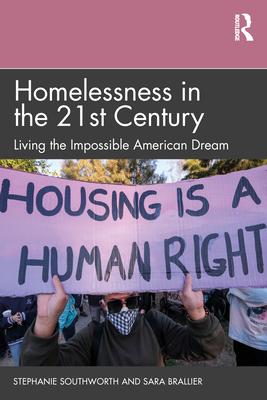An accessible and engaging introductory text on homelessness and housing policy, this timely book uses a sociopolitical framework for understanding issues of homelessness in the United States.
The authors, leading sociologists in their field, use data from over 250 interviews and field notes to demonstrate that homelessness is rooted in the structure of our society. They identify and describe the structural barriers faced by people who become homeless including the lack of affordable housing, the stigmatization and criminalization of homelessness, inadequate access to healthcare, employment that does not pay a living wage, and difficulty accessing social services. Despite seemingly insurmountable odds, most of the people included in this book believe strongly in the American Dream. This book examines how the belief in the American Dream affects people experiencing homelessness. It also highlights individuals' experiences within the social institutions of the economy, the criminal justice system, and the health care system. Furthermore, this book explores how stereotypes of people experiencing homelessness affects individuals and guides social policy. The authors examine policy changes at the local, state, and national levels that can be made to eradicate homelessness, but argue that there must be a political will to shift the narrative from blaming the victim to supporting the common good.
Expertly combining history, theory and ethnography, this book is an invaluable resource for those with an interest in housing policy.
